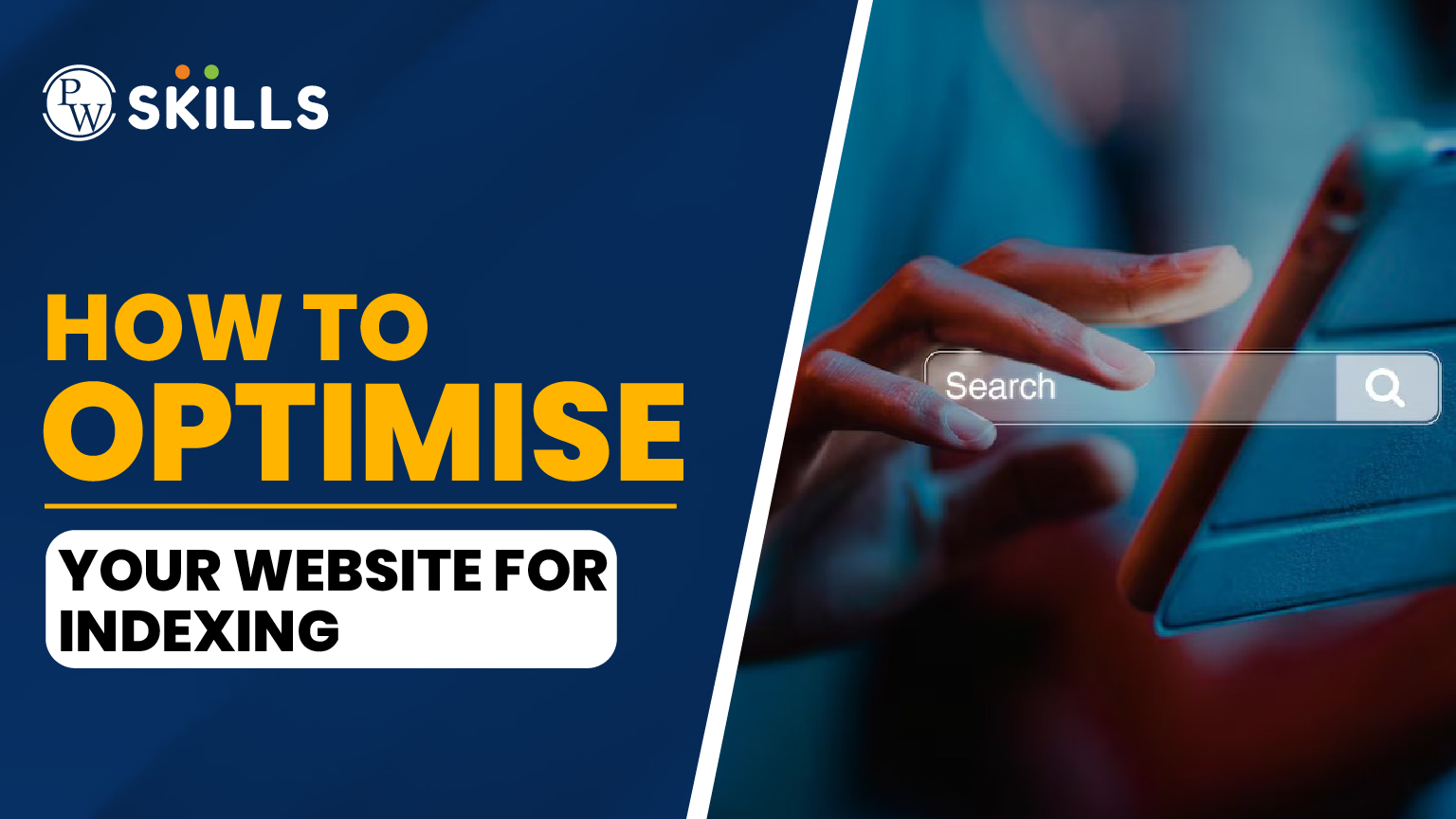Optimizing your website for SEO indexing is a crucial step in ensuring your content appears in search engine results. Indexing in SEO refers to the process by which search engines discover and store your website’s pages in their database to show them when relevant queries are made.
Without proper indexing, your site will not be visible to users on search engines. How to do indexing in SEO involves several steps, such as creating and submitting sitemaps, ensuring mobile compatibility, improving page load speeds, and making your site crawlable.
For example, if you have a blog with multiple pages, indexing ensures these pages are considered by search engines and appear in search results when users query relevant topics. Optimizing indexing helps improve your search engine rankings and visibility.
What Is Indexing in SEO?
Indexing in SEO refers to the process where search engines like Google crawl and store the content of web pages in their databases, making them eligible to appear in search engine results. When a page is indexed, it means that the search engine has discovered, analyzed, and catalogued its content, allowing it to be retrieved in response to relevant search queries.
SEO indexing is essential for the visibility of a website, as pages that are not indexed will not be shown in search results, limiting their potential to attract traffic. Optimizing your content for SEO indexing ensures that search engines can properly understand and rank your pages based on relevant keywords and content quality.
How Does Indexing Work?
Indexing in SEO is the process through which search engines like Google scan, analyze, and store the content of your web pages in their database. When a search engine crawls your site, it follows links, collects data, and assesses the content of each page. Once a page is crawled, it is added to the search engine’s index if it meets certain criteria for relevance and quality.
For SEO indexing to work effectively, search engines evaluate multiple factors like keywords, metadata, internal linking, and the structure of the content. Well-optimized pages with relevant content are more likely to be indexed quickly and ranked higher in search results. Ensuring that your website is properly structured and optimized for SEO indexing helps improve your site’s visibility and accessibility to search engines.
How To Optimise Your Website for SEO Indexing
SEO indexing is one of the most important aspects of search engine optimization, as it directly impacts your website’s visibility in search engine results. Without proper indexing, search engines won’t list your web pages in their results, which can significantly harm your organic traffic. Optimizing your website for SEO indexing involves several best practices that ensure search engines can easily discover, crawl, and index your pages. Here’s a comprehensive guide on how to optimize your website for SEO indexing.
1. Create and Submit a Sitemap
A sitemap is essentially a map of all the important pages on your website that you want search engines to crawl and index. By creating and submitting a sitemap, you help search engines easily find and access all the critical content on your website.
- Why It’s Important: Without a sitemap, search engine crawlers might miss some pages, especially if they’re not linked properly or buried deep within your site.
- How to Optimize: Use tools like Google Search Console to submit your sitemap directly to search engines. Additionally, ensure your sitemap is always up-to-date as you add new content or make changes to your website.
Tip: Use plugins like Yoast SEO or Google XML Sitemaps if you are using WordPress. These plugins automatically generate sitemaps and update them regularly.
2. Ensure Proper Crawlability with Robots.txt
The robots.txt file is a simple text file placed in the root directory of your website. It tells search engine crawlers which pages they are allowed to crawl and which ones they should ignore. This is crucial for controlling what gets indexed and ensuring that search engines only focus on the most important pages.
- Why It’s Important: Incorrectly configured robots.txt files can prevent search engines from crawling and indexing crucial parts of your site, potentially leaving key pages out of search result
- How to Optimize: Make sure that important pages like blog posts, product pages, or services aren’t blocked by robots.txt. If you want search engines to avoid certain areas (like admin or private pages), block those specifically.
Tip: Double-check your robots.txt file using Google Search Console to ensure you are not unintentionally blocking any important content.
3. Optimize for Mobile Devices
With Google’s mobile-first indexing, search engines now prioritize the mobile version of your website for indexing and ranking. If your website isn’t mobile-friendly, search engines might not index it properly, or worse, rank it poorly.
- Why It’s Important: A significant portion of online traffic comes from mobile devices, and Google wants to ensure that users have a seamless experience across all platforms.
- How to Optimize: Use responsive web design to ensure your website adapts well to all devices—desktop, tablet, and mobile. You can test your site’s mobile-friendliness with Google’s Mobile-Friendly Test tool.
Tip: Make sure your mobile site loads quickly and doesn’t have hidden or inaccessible content that might affect the crawlability of your pages.
4. Improve Page Load Speed
Page speed is a key ranking factor for SEO and plays an important role in SEO indexing. If your website loads slowly, search engine bots might have difficulty crawling and indexing your pages, or they might abandon the process before completion.
- Why It’s Important: Slow-loading websites provide a poor user experience, which can lead to higher bounce rates and lower rankings.
- How to Optimize: Compress images, use caching, minimize JavaScript and CSS files, and choose a reliable web hosting provider to improve loading times. Tools like Google PageSpeed Insights can help identify areas for improvement.
Tip: Aim for a page load time of under 3 seconds for optimal performance.
5. Use Internal Linking Strategically
Internal linking helps search engines crawl and index your website by creating a clear path between your pages. When you link from one page to another, you not only provide a better navigation experience for users, but you also guide search engine bots through your site.
- Why It’s Important: Without internal links, search engines might miss important pages, especially if they’re not linked from the homepage or other high-authority pages.
- How to Optimize: Use a clear and logical internal linking structure. For instance, link to your product pages from blog posts, or link to related articles within the content itself.
Tip: Use anchor text that’s relevant to the page you are linking to, helping both users and search engines understand the context of the link.
6. Optimize Your Content for SEO
Search engines index content based on its relevance, structure, and quality. If you want your content to be indexed effectively, it needs to be optimized for both users and search engines.
- Why It’s Important: Search engines analyze content to determine its relevance to search queries. If your content isn’t well-optimized, it may not be properly indexed or ranked for relevant terms.
- How to Optimize: Include relevant keywords naturally within your content, titles, meta descriptions, and headers. Use proper HTML tags like H1, H2, etc., to structure your content for readability and SEO.
Tip: Focus on creating high-quality, original content that provides value to your audience. Answer questions, solve problems, and keep your content updated to maintain relevancy.
7. Fix Broken Links and Redirects
Broken links and improper redirects can confuse search engine crawlers, making it difficult for them to index your pages properly. Broken links lead to 404 errors, which can prevent search engines from accessing certain pages.
- Why It’s Important: Broken links can negatively impact your SEO rankings by causing crawl errors. A website full of broken links may also be seen as low quality by search engines.
- How to Optimize: Regularly check your website for broken links using tools like Screaming Frog or Google Search Console. If you have moved pages, use 301 redirects to send both users and search engines to the correct location.
Tip: Ensure all external links on your website are working and leading to high-quality, authoritative sources.
8. Submit Your Website to Search Engines
In some cases, you might want to directly submit your website to search engines like Google and Bing, especially if your site is new or you’ve made significant updates.
- Why It’s Important: Manually submitting your website helps search engines discover your site faster, especially if they haven’t crawled it yet.
- How to Optimize: Use Google Search Console’s URL Inspection tool to submit individual pages for crawling or re-crawling. Similarly, you can submit your website’s URL through Bing Webmaster Tools.
Tip: Submit new content or updates immediately after publishing to ensure timely indexing.
9. Monitor SEO Performance and Crawl Stats
It’s crucial to monitor how well your website is being indexed. Tools like Google Search Console provide detailed reports on crawl errors, indexing status, and performance metrics, so you can keep track of how search engines are interacting with your site.
- Why It’s Important: Regular monitoring helps you identify and fix any issues that might be preventing pages from being indexed properly.
- How to Optimize: Regularly review the Coverage report in Google Search Console to identify any pages with indexing issues or errors. Address these issues immediately to ensure all your pages are properly indexed.
Tip: Check for crawl anomalies or indexed but not submitted pages, as these might indicate that there are issues with your website’s structure or content.
⚙️ Technical & On-Page SEO
- Technical SEO
- On-Page and Off-Page SEO
- On-Page SEO
- How to Optimize Website for SEO Indexing
- Website Speed Optimization Tips
- Keyword Stuffing in SEO
- Rich Snippets
- Internal Linking for SEO
- What is Schema Markup?
- SEO Mistakes
- Pinterest SEO
- SEO Rankings
- YouTube SEO Keywords
- How to Do Keyword Research
- Keywords in SEO
- SEO Meta Title and Description
- Meta Title Tag
- Meta Tags for SEO
- Meta Title
- Meta Description
- SEO Meta in 1 Click
- Alt Tag (Image)
- Canonical Tag
- H1 Tag
Learn Digital Marketing With PW Skills
Start your journey into the ever-evolving field of digital marketing with our Digital Marketing Course. This 6-month-long beginner-friendly course will help you to learn important tools and techniques under the guidance of industry experts. You’ll also get facilities of 1:1 doubt sessions, daily practice sheets, 100% job assistance guarantee, and much more to help you start your career. Visit PWskills.com to enroll today and unlock exciting offers on course fees!
SEO Indexing FAQs
Why is SEO indexing important for my website?
Without proper indexing, your website’s pages won’t show up in search engine results, making it difficult for users to find your content. Indexing ensures that search engines recognize and rank your pages, helping to drive organic traffic to your website.
How do I do indexing in SEO?
To optimize your website for indexing in SEO, start by creating and submitting a sitemap to search engines, ensuring your site is crawlable, and using a robots.txt file to manage which pages are indexed. Make sure your site is mobile-friendly, has fast page load speeds, and includes proper internal linking to help search engines discover all your content.
How do I check if my site is indexed?
You can check if your website is indexed by typing “site:yourdomain.com” into a search engine like Google. This will show all the pages from your website that have been indexed. You can also use tools like Google Search Console to track your website’s indexing status and identify any issues.


